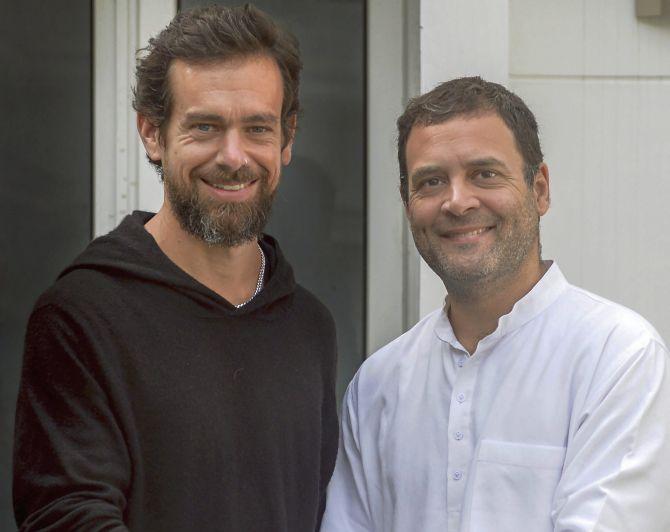Success in the Lok Sabha polls would help Twitter chart out its growth story in India.
Karan Choudhury and Archis Mohan report.

As social media sites fight it out to emerge as the biggest platform in the run-up to the upcoming general election, Twitter has set sights on the 190 million strong rural Internet user base in India.
From promoting the usage of local languages, hiring regional bloggers, social media influencers, regional think-tanks to organising road shows to educate people more about the platform, Twitter hopes to gain a chunk of new users from rural India next year.
Currently, it has close to 30 million users in India, quite small if compared to Facebook (294 million), WhatsApp (200 million) and Instagram (71 million).
However, activity on the platform during the recent assembly polls in five states, particularly in Hindi and Telugu, has enthused Twitter to look at the upcoming Lok Sabha polls as an opportunity to expand its user base, especially in Indian languages.

Last month, during his maiden visit to India, Twitter CEO Jack Dorsey reached out to all political parties and met government officials -- at the Centre and in states -- as well as senior police officers and civic body officials, to talk about delivering governance via the platform.
According to sources close to the firm, Dorsey has also made it clear to his team in India that the platform would require to gain new users from rural India to make the expansion possible.
To achieve this, the company says it has a fresh strategy to target tier-III and rest of Indian towns and villages.
"Over the next few months, road shows would be organised throughout the country to educate people on how easy it is to connect to their political leaders via Twitter. Small-scale events would be organised in villages where young local influencers would teach people how to tweet, talk to them about online trends, teach them how to look for reliable information on the platform," says a source part of the team creating a blueprint of the initiatives.
These influencers would also educate people about fake news, how to spot and report it.
"These influencers want to assure people that the platform is heavily moderated and the danger of fake news on the platform is lesser than in messaging apps," added the source.
Local languages would play an important role as well.
The social media giant plans to launch initiatives in as many as 10 languages and hopes to add local dialects as well. These would include Hindi, Telugu, Tamil, Malayalam, Kannada, Bengali and Marathi.
A massive recruitment drive is on to bring in people who will be part of the vernacular initiative.
According to Twitter, the success in the 2019 Lok Sabha polls would help Twitter chart out its growth story in India. It has already tasted success in the recent assembly elections.
Between October 1 and December 11, Twitter saw more than 6.6 million tweets in relation to #AssemblyElections2018.
Throughout the elections campaign, politicians and political parties extensively used Twitter to reach out to the electorate.
Poll promises and policy announcements of political parties were some of the top-tweeted moments.
Prime Minister Narendra Damodardas Modi and Congress President Rahul Gandhi were the top mentioned leaders on Twitter.
The rural economy emerged as the most talked-about election-related topic over the past nine weeks.
Twitter had earlier said it would offer all the tools it used in the 2016 US presidential elections to the social media teams of all political parties in India.
Its BlueRoom initiative might feature interviews with leaders of political parties, local representatives, student union leaders, as well as political commentators.












 © 2025
© 2025